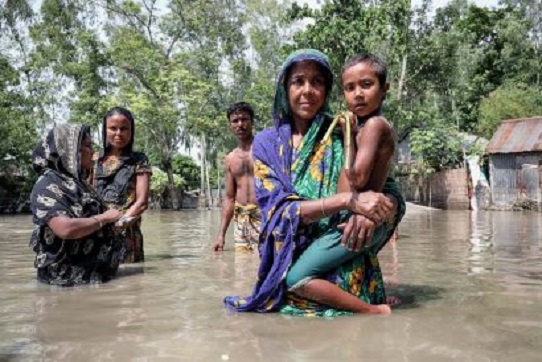
News | New IMF fund to help vulnerable countries confront climate crisis
The International Monetary Fund (IMF) has announced it will create a new facility aimed at helping low-income and vulnerable middle-income countries address climate change and other longer-term structural challenges.
Managing director Kristalina Georgieva revealed the board had signed off on the new resilience and sustainability trust (RST), saying it would take effect from 1 May with a goal of raising at least $45bn.
The facility comes on top of a $650bn allocation in special drawing rights (SDRs) by the IMF last year. SDRs are a reserve asset issued by the IMF which can be exchanged for the currencies of the fund’s members.
Civil society groups have said that although SDRs are immensely valuable to low-income and vulnerable countries, the bulk of the allocation last year went to advanced economies which did not need them. The groups have therefore called for the rules governing the distribution of SDRs to be reformed.
Georgieva said the RST would allow resources to be channelled from richer member countries to those where the needs are greatest, thereby amplifying the impact of the SDRs. But civil society groups have expressed scepticism over the current plans.
A briefing by the European Network for Debt and Development points out that while the maximum size of the new facility is around $50bn, SDRs worth $400bn are currently left idle in central banks around the world. The authors also express concern over the RST’s focus on promoting reforms in the area of climate action, which they believe is controversial due to the IMF’s track record in this domain.
In an open letter published to coincide with the IMF’s announcement, 17 civil society groups called on the IMF to work with international institutions that have relevant expertise on climate action, such as the United Nations Framework Convention on Climate Change.
“Before implementing the RST, the IMF should convene a consultative discussion including a broad range of stakeholders to ensure it contributes to a fair recovery that supports climate justice and tackles economic and gender inequalities,” says the letter, which was signed by groups including the Bretton Woods Project and the Center for Economic and Policy Research.
Kristalina Georgieva has made climate action a priority for the IMF since taking up her post as director. The fund published a strategy last year laying out plans for increased climate assistance, which includes boosting the capacity of central banks and supervisory authorities towards addressing climate-related financial risks.
Author:David Clarke
Source:Green Central Banking



